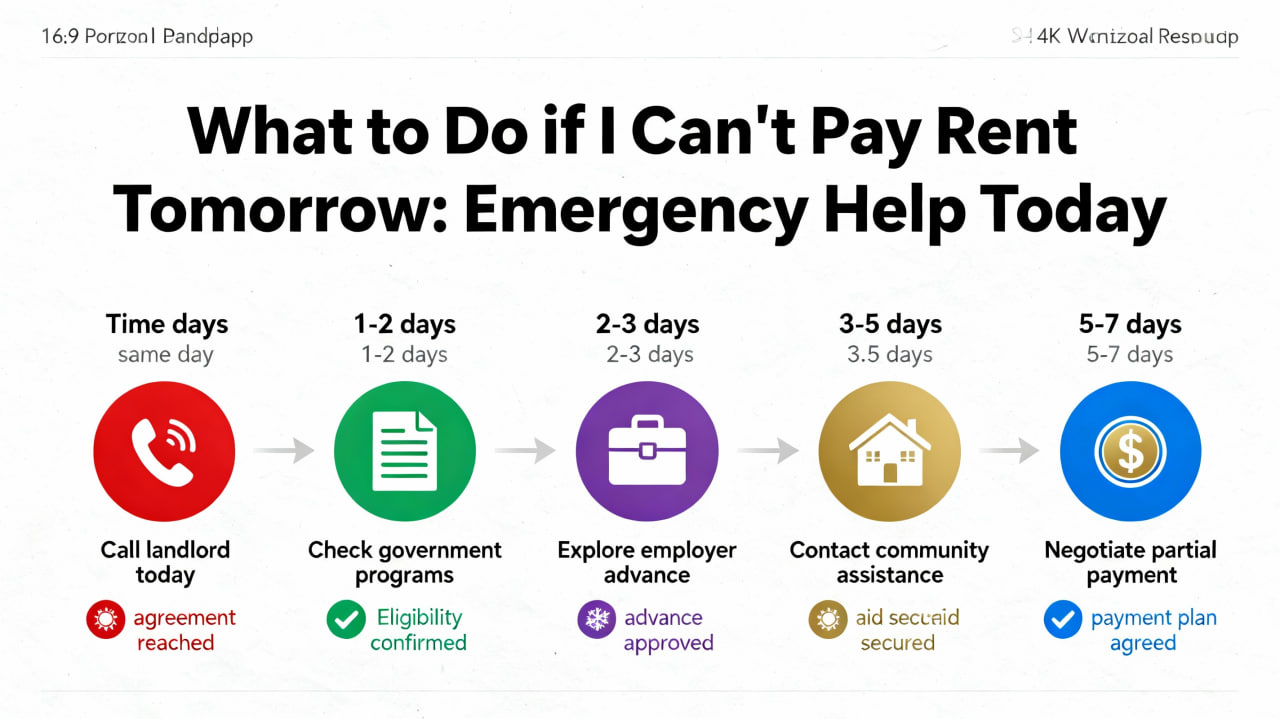Need Money for Medical Bills Today: 5 Emergency Funding Solutions
Your emergency room bill just arrived. The number makes your stomach drop. You weren’t prepared. The panic is real. But here’s what thousands of patients discover: You don’t have to pay it all upfront. Hospital payment plans (many 0% interest), medical debt forgiveness programs, pharmaceutical assistance, medical credit options, and nonprofit grants exist specifically for this crisis. Within 24 hours, you can secure a manageable path forward.
You’re Facing a Medical Crisis (And You’re Not Alone)
Over 40% of Americans struggle to pay unexpected medical bills. A single emergency room visit averages $1,200–$4,000; with imaging, tests, or procedures, bills spike to $5,000–$15,000+ overnight. Job loss, underinsurance, or simply bad timing turns critical healthcare into financial trauma.
But here’s the truth most patients don’t know: Hospitals are required (by law, in many cases) to offer payment assistance. They have financial counselors, debt forgiveness programs, and payment plans designed for exactly this situation. The problem? Nobody tells you they exist.
This guide shows you the fastest path to financial relief, starting today.
Step-by-Step Action Plan: 24 Hours to Relief
Step 1: Call the Hospital Billing Department TODAY (Within 2 Hours)
This single call often reduces your bill by 30–70%. Here’s why hospitals help:
- Many are legally required to offer charity care or financial assistance.
- Hospitals would rather negotiate than pursue collection (which costs them money).
- Most have entire departments dedicated to patient financial support.
What to say:
“Hi, I received a bill for [amount] from my recent visit. I’m having trouble affording this. What financial assistance options are available? Do you have charity care, payment plans, or debt forgiveness programs?”
Key ask: “Is there a financial counselor I can speak with today?”
Most hospitals connect you immediately to a financial advisor. Many offer same-day phone consultations.
Step 2: Ask About Hospital-Specific Options (Same Call)
During that call, specifically ask about:
- Charity care programs – Full or partial bill forgiveness based on income
- Financial assistance programs – Hospital grants for uninsured/underinsured patients
- 0% interest payment plans – Split your bill over 12–60 months with no interest
- Income-based discounts – Many hospitals offer 10–90% discounts if you qualify by income
- Medicaid retroactive coverage – Sometimes emergency care is covered if you apply
Important: Ask for everything in writing. Get the financial counselor’s direct email and ask them to send a summary of options before you end the call.
Step 3: Apply for Pharmaceutical Assistance (If Medications Required)
If your medical emergency involved medications (hospital discharge medications, ongoing prescriptions), drug manufacturers have patient assistance programs that provide free or discounted medication.
- Visit NeedyMeds.org or RxAssist.org – search for your specific medication.
- Many programs approve same-day or next-day if you have low income.
- Some cover the full cost; others reduce it to $0–$25/month.
This alone can free up hundreds of dollars in your budget.
Step 4: Explore Medical Credit & Flexible Payment Options (If Needed)
If the hospital’s payment plan doesn’t work for your timeline, medical-specific credit options exist:
- CareCredit – Special promotional rates (sometimes 0% for 6–24 months)
- Possible Finance – Medical-specific flexible payment plans
- LendingClub Medical Loans – Personal advances for medical expenses
- Medical bill payment apps (Adjust, Bought, Sunbit) – BNPL-style financing
Warning: Only use these after hospital negotiations. Most hospitals will match or beat external financing terms.
Step 5: Apply for Nonprofit Medical Grants (If Bill Remains High)
Hundreds of nonprofits provide medical bill grants. Applications take 10–20 minutes:
- Patient Advocate Foundation – Copay, coinsurance, and medical bill assistance
- CancerCare, HealthWell Foundation – Disease-specific assistance
- American Association of Retired Persons (AARP) – For eligible seniors
- Local nonprofits & community health centers – City/county specific programs
- GoFundMe Medical – Crowdfunding for large bills
Many approve funds within 3–7 days if income qualifies.
Why Acting Today Matters
Hospital billing departments process thousands of requests. The ones who get fastest responses? Patients who call within 48 hours of receiving a bill, before the account transfers to collections or the window for negotiation closes.
Timeline matters:
- Days 1–7: Hospital can still negotiate; options are flexible; you have leverage.
- Days 8–30: Account status changes; options narrow; negotiations become harder.
- Days 30+: Collections agencies may become involved; your credit is at risk.
Call today. Negotiate today. Secure a plan today.
Comparison: Emergency Medical Bill Solutions
| Option | Speed | What’s Needed | Cost to You | Best When |
|---|---|---|---|---|
| Hospital Charity Care | Same day–3 days (often) | Income proof, ID, application | $0–50% off (income-based) | You have low–moderate income |
| Hospital Payment Plan (0% Interest) | Same day agreement | Signed agreement; no income check often | Full amount split over months | You can afford installments |
| Pharmaceutical Assistance | Same day–3 days | Medication name, income, basic info | $0–free (if approved) | Prescription/medication bills are high |
| Medical Credit (CareCredit) | Instant (online approval) | Credit check; 18+ years old | 0% for 6–24 mo promo (then 27% APR) | You have OK credit; want flexible terms |
| Nonprofit Medical Grants | 3–7 days (most) | Income, medical bill copy, hardship note | $0 (grant, not debt) | Bill is large; income is very low |
FAQ: Emergency Medical Bills & Financial Relief
Q: Can I really get a hospital bill reduced?
A: Yes. Studies show 40–70% of medical bills can be reduced through negotiation, charity care, or financial assistance. Most hospitals offer it; most patients don’t ask.
Q: What if I ignored the bill so far?
A: Contact the hospital immediately. Even if 30–60 days have passed, financial departments often negotiate before the bill reaches collections. Acting now prevents credit damage.
Q: Do I need perfect credit?
A: No. Hospital payment plans and charity care don’t require credit checks. Even if your credit is damaged, you qualify.
Q: What income qualifies for charity care?
A: It varies by hospital, but typically 200–400% of the federal poverty line. That’s roughly $27,000–$55,000 for an individual. Many hospitals also consider debt and family size.
Q: How long does negotiation take?
A: Many agreements finalize within 24–48 hours of your call. Get approval in writing and payment terms before paying anything.
Q: Can I negotiate an ER bill while still in the hospital?
A: Yes. Ask the hospital discharge team for a financial counselor before you leave. Many approve payment plans before discharge, which simplifies everything.
Q: What if I can’t afford even a payment plan?
A: Ask about income-based charity care or full forgiveness. Also apply to nonprofits and pharmaceutical assistance. Combine multiple sources: partial grant + partial payment plan = full coverage.
Q: Will this hurt my credit?
A: Hospital payment plans don’t usually report to credit bureaus if you pay on time. Medical credit (CareCredit) does report, but as an installment account (less damaging than collections).
Your 24-Hour Checklist
- ☐ Within 1 hour: Find your hospital billing number (on bill or call hospital main line).
- ☐ Within 2 hours: Call hospital billing; ask for financial counselor; request charity care/payment plan info.
- ☐ Same day: Get all options in writing via email.
- ☐ Same day: If medications involved, search NeedyMeds.org for pharmaceutical assistance.
- ☐ By tomorrow: Decide: hospital plan OR medical credit OR nonprofit grant (or combination).
- ☐ By day 3: Submit applications to nonprofit programs if needed.
- ☐ By day 5: Confirm payment plan in writing; set up autopay if possible.
Most medical bills are negotiable. The difference between crushing debt and manageable payments? One phone call, made today.
You’re Not Irresponsible. This Is Normal. And It’s Solvable.
Medical emergencies are unpredictable. Even with insurance, bills shock. The system is designed so that patients don’t know they can negotiate—but hospitals expect it. Financial counselors exist because this situation is normal and frequent.
You’re not failing by needing help. You’re being smart by asking for it.
Within 24–48 hours, you’ll have a plan. Within 30 days, you’ll have a structured payment schedule. Your emergency becomes manageable.
⚠️ Disclaimer: This guide is informational only and does not constitute legal, medical, or financial advice. Consult with a hospital financial counselor, financial advisor, or legal aid for your specific situation. Medical bill laws and programs vary by state, location, and institution. This information was last updated November 2025.


